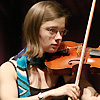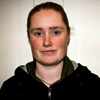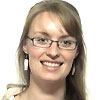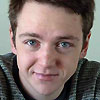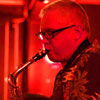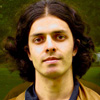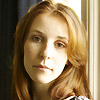Jack Body Interview - Page 4
I was in Christchurch for about six years - '41 until '47. And my associations with the Caxton Press? This was all one thing. There were excellent people at the Caxton Press like Denis Glover and Leo Bensemann - other people like Lawrence Baigent, excellent painters like Rita Angus, poets like Allen Curnow. I mean it was very civilised context. I travelled very little. Occasionally to Dunedin which was an outpost, and once up to Auckland. And I was terribly disappointed to meet my gods up there like R.A.K. Mason and Frank Sargeson, and realise that they were not oracles at all. This was much later when Owen Jensen arranged for me to go up for the first Cambridge Summer School.
Contemporary European music, goodness yes. Christchurch was a very advanced outpost. Victor Peters of the harmonic Society gave one of the very early performances of Belshazzar's Feast and the Rio Grande of Constant Lambert. He was a terrific conductor. I remember I had to go along as critic to Elijah. I thought 'Mendelssohn, my God, what do I say about this!' but I was sitting on the edge of my seat as I listened to these Mendelssohn choruses as conducted by this Victor Peters... Well I heard my first Bartok, Bartok String Quartet No. 1 on a portable gramophone and I was absolutely baffled by the sound, mad mad mad sound you know. Stravinsky - I picked up very quickly the early works - the big ballet scores. One could listen to these and one would get something one understood even if one didn't get the whole message. He was much less a problem than Bartok, say.
Vaughan Williams had already, along with Stravinsky and Bartok, become a presence in Christchurch, I suppose through works like Wenlock Edge which were recorded early and which came out here. And the Tallis Fantasia which is, I think, an incredible piece of music, and history will look at this from many angles, but it is really a monumental piece.
Well, I just knew I wanted to study with this man. Why I'm not sure... When I first walked in [to the first lesson with Vaughan Williams in London, 1937] I found this big lumbering man wrapped up in tweeds and I'd heard he'd said 'Another wretched student wants to come to me!' Okay he agreed to take me on and I was second student in the afternoon. After he'd had lunch he yawned terrifically - but after the first term I found I was number two in the morning. I took that as a signal for courage. Oh he was an incredible personality. He wasn't clever. He didn't tell one a lot about technical things at all, but I could learn that from elsewhere. But he did convey the essence of a personality and this thing about integrity - he liked to say cut out all the bits you like best. You know this is paradox, but it conveys the message don't be clever, don't be silly, don't try to impress - search for what is valid in your intuition, your understanding, and go from that. Vaughan Williams didn't admit a grammar. He felt that musical manner should be inbred. As a teacher he trusted you to know exactly what you wanted to do, and how you wanted to do it, and his only concern was to see that you did it without a lot of superfluous notes... He was the last person to talk about his own music, and I suppose this made an impression on me too...
Yes, I may have considered staying in England, but even apart from the war I was very conscious before I ever went to England of Ian Milner, son the Rector at Waitaki, saying, "I write with spleen from another ruined summer; one remains a colonial speaking the same language." I took note of that. And when I go to England of course I could pass as English or Scottish or something without much trouble with my accent, but I was always conscious of this thing. And of course I met up with some exiles because there still were exiles - people like D'Arcy Cresswell, James Courage and finally Robin Hyde. We were having coffee with Inglis Gundry and Robin Hyde in an old Warners Coffee House... and something was said about New Zealand by Inglis and Robin Hyde went into a throw and said, "New Zealand New Zealand New Zealand"... And bless her of course. She committed suicide quite shortly afterwards, but that nostalgic cry remained in my memory...
But from then on there seemed to be no more exiles. It was taken considerably for granted that people should come back, and that they could exist here: that this is what they should do. And of course this was born in the early premonitions of the poets and painters of the 30's...
The opening of the Music Department here in Wellington was in 1946. But before that, quite long before that, some public-minded people in the University had set aside that music room as a good room for music and that they wanted a Music Department. And so in 1946 they appointed Freddy Page as Lecturer in Music and he came up and set the whole thing going. I wrote him a testimonial. In the following year about Easter I got a telegram to say will you come and help out? 250 pounds a year. Yes, that was pretty small, but it was enough to enable me to keep my room in Christchurch on and to move into a single room in Wellington and teach part-time. Spend a teaching term in Wellington and go to Christchurch as quickly as possible back to my context and my piano. And the same thing next year '48, except I made 300 pounds a year. They didn't pay my fares up and down or anything like they do for people now.
But in '49 they advertised a Lectureship and I was very hesitant to put in for this because I really didn't want to sever my ties with Canterbury. On the other hand I realised that most of my Canterbury context had evaporated and it was time to do something different. So I put in for the Lectureship and got it and that was 600 pounds a year. Not bad money in those days. Kept afloat in a single room at least, and so I lived in a variety of single rooms. And then I called in a bit of capital which my family had been sitting on all this time and bought myself a little place at Paekakariki. I used to spend hours travelling backwards and forwards. I owned a car in about 1954 for about two years, I can' t remember exactly, but I used to enjoy coming in on the train. The trip on the train left you absolutely free to think, to look out the window. But as soon as I got this car it meant absolute concentration on the road, on what you were doing, and okay, it was twice as quick but twice as dangerous too. Anyway I was quite happy to get rid of it when I went of to England in 1955. That was my first leave...
At this time in Wellington I wrote no criticism because I realised that this makes more enemies that friends. And conducting only once or twice. I conducted Alex Lindsay's string orchestra. I'd had a disastrous conducting experience once in Christchurch, I remember, for the Noel Newson memorial concert where a singer got out of place in the score and I couldn't get her back in place and that sort of precluded anything more in that field. But I did once conduct in Wellington for Alex Lindsay, just to put him through a Mozart concerto in the first part of the programme so that he could take over in the second half. I'm not naturally a performer, a conductor, not someone wanting to present myself on a platform, just not that. The exact opposite. I mean in childhood if someone arrived at the gate or at the front door one's first instinct was to retreat back and disappear into the bush. It was safer there. So..."


